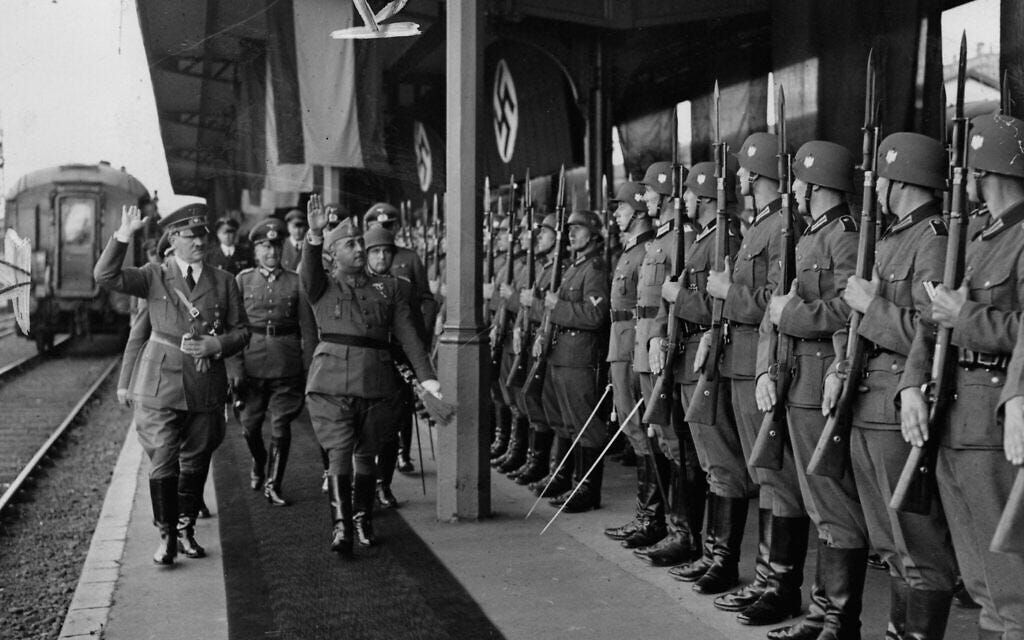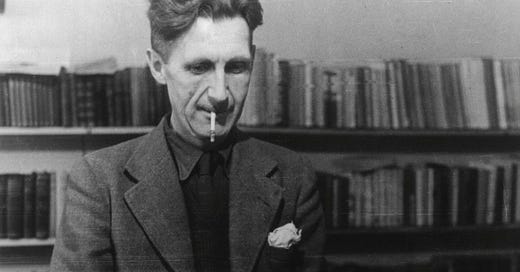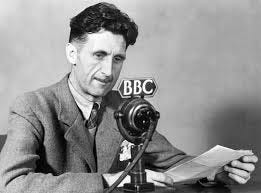This week is the birthday of George Orwell (pen name of Eric Blair), born June 25, 1903. He took the name from his favorite spot, the Orwell River.
Best known for 1984 (published in 1949) and Animal Farm (1945), George Orwell was born in India, and worked as an Imperial policeman in Burma, an eye-opening experience that gave him insight into human nature and the potential abuses of government that stayed with him all his life.
It is worth noting that he was under surveillance by his own UK government and died 1 year after the publication of 1984.
"One could not have a better example of the moral and emotional shallowness of our time, than the fact that we are now all more or less pro Stalin. This disgusting murderer is temporarily on our side, and so the purges, etc., are suddenly forgotten."
— George Orwell, in his war-time diary, 3 July 1941
Orwell was wounded fighting in the Spanish Civil War, leading to his first bout with ill health. Until recently, the extent to which the UK’s Secret Intelligence Service was involved in handpicking and putting the unemployed head of a military college, Francisco Franco, into power, destroying the democratically elected Spanish government and much of Spain along with it. Franco’s dictatorship lasted until he died in 1975.

Ill health prevented Orwell from participating in WWII except in the Greenwich Home Guard and later as a BBC journalist. He later became a literary critic as well.
A curious fact: his second wife Sonja Orwell, married shortly before his death, sold the rights to Animal Farm to the CIA, who produced its cartoon cover as propaganda.
Few writers’ names have become adjectives. "Orwellian” describes totalitarian and authoritarian social practices. Many of his neologisms have entered the lexicon: "Big Brother" "Thought Police" "Room 101" "Newspeak" "memory hole" "doublethink" and "thoughtcrime." He is clearly one of the most intelligent and influential writers ever.
Writers must ask themselves 4 questions:
What am I trying to say?
What words will express it?
What image or idiom will make it clearer?
Is this image fresh enough to have an effect?
The revision process involves 2 more:
Could I put it more shortly?
Have I said anything that is avoidably ugly?
“One can often be in doubt about the effect of a word or a phrase, and one needs rules that one can rely on when instinct fails. I think the following rules will cover most cases”:
Never use a metaphor, simile, or other figure of speech which you are used to seeing in print.
Never use a long word where a short one will do.
If it is possible to cut a word out, always cut it out.
Never use the passive where you can use the active.
Never use a foreign phrase, a scientific word, or a jargon word if you can think of an everyday English equivalent.
Break any of these rules sooner than say anything outright barbarous.
From Orwell's essay "Politics and the English Language.
Writing Tips from F. Scott Fitzgerald
You don't write because you want to say something, you write because you have something to say. -F. Scott Fitzgerald Memorable poetic prose. Rich imagery. Recognizable characters. The go-to guy on great writing is F. Scott Fitzgerald. (So it’s notable that he was not successful at transposing his skill to write for the big screen — there is such a thing…






